- Home
- Terry Brooks
Sometimes the Magic Works Page 13
Sometimes the Magic Works Read online
Page 13
While writing it and even afterwards, I always thought of it as an adventure story. I understood that it was in the epic fantasy tradition, a direct descendant not only of The Lord of the Rings, but of the Iliad and the Odyssey, of the Greek, Roman, Norse, and Celtic myths, and of legends, fairy tales, and folklore since the dawn of Man. But at its heart, at the place where it meant something to me, where the passion and involvement found their touchstone, I always saw it as an adventure story.
My books are compared most often to Tolkien’s, sometimes favorably, sometimes not, less so now than once, but frequently nevertheless. This is understandable. When Sword was published, Lester and Judy-Lynn chose to draw potential readers to it using words similar to these: “For all those who have been looking for something to read since The Lord of the Rings.” Such language invites comparisons, good and bad. I have written nineteen books in three series along with two movie adaptations since I began my career with Sword, and the comparisons continue. I suspect they always will. It goes with the territory.
What strikes me as odd is that very few of those who choose to draw comparisons between Tolkien and myself mention the one that I think is the clearest. Remember those pieces of clothing I mentioned earlier, the ones belonging to established authors that young authors in search of an identity seek to try on? Well, the piece of clothing I borrowed from J. R. R. Tolkien, the one I wear to this day and refuse to take off, is the one that defines my protagonists. Whether it is Shea and Flick Ohmsford from Shady Vale in The Sword of Shannara or Ben Holiday in Magic Kingdom for Sale or Nest Freemark in Running with the Demon, my protagonists are cut from the same bolt of cloth as Bilbo and Frodo Baggins. It was Tolkien’s genius to reinvent the traditional epic fantasy by making the central character neither God nor hero, but a simple man in search of a way to do the right thing. It was the most compelling component of his writing, and I think it remains so. I was impressed enough by how it had changed the face of epic fantasy that I never gave a second thought to not using it as the cornerstone of my own writing. I had thought to see it used by other writers of fantasy after the success of Sword, but to this day very few have chosen to do so. Most still prefer to make their protagonists kings and wizards and men of power. I think that’s too bad. Ordinary men placed in extraordinary circumstances are far more interesting.
In any case, it is in the nature of writing that writers follow in the footsteps of those who wrote before. Lester used to tell me that there are no new stories, only old stories told in a different way. Given the propensity of readers to want to read the same kinds of stories over and over, I expect that this is true. We are creatures of habit and seek the familiar and comfortable. Why should writers be any different? There is room for innovation and expansion, but that isn’t the way writers usually start out. As with most things, we take the paths others have taken until we are comfortable enough with the journey to blaze a few trails of our own.
I wonder sometimes what younger writers think when they are compared to me. How do they feel about being told that their books are similar to those of Terry Brooks? I guess I hope that they feel much the same way I do when mine are compared to Tolkien’s—that it’s not a bad standard to try to live up to. I hope they remember that we share a common destination as fellow travelers on the writing trail—to write the best book we can, because no matter who we are compared to, at the end of the day how we feel about ourselves is what matters most.
* * *
If you do not hear music in your words,
you have put too much thought into your
writing and not enough heart.
* * *
* * *
FINAL THOUGHTS
* * *
THERE ARE A few last things that need to be said that I haven’t found a place for elsewhere in this small book. They are directed to writers of fiction, but I hope they will be of interest to readers, as well. I have phrased them as admonitions because I feel strongly about each. Most are expressed in a sentence or two.
They comprise my beliefs about what it takes to write fiction.
Three character traits are essential—determination, instinct, and passion. Each has a place in a writer’s life; each acts as a balance for the others. Determination teaches a writer to be patient; without it, commitment quickly fades. Instinct tells a writer which fork in the road to take; without it, as many wrong turns are taken as right. Passion imbues a writer with fearlessness; without it, no chances are ever taken. None of the three can be taught; all are a gift of genetics and early life experience.
There is poetry in fiction. If you cannot see it and feel it when you write, you need to step back and examine what you are doing wrong. If you have not figured out how to write a simple declarative sentence and make it sing with that poetry, you are not yet ready to write an entire book.
If you do not hear music in your words, you have put too much thought into your writing and not enough heart.
If you do not ever wonder what happened to your characters after you stopped writing about them, you did not care enough about them in the first place and do not deserve to know.
If you think that by having published you will become a happier person, you are mistaken. If you think that the finished book is of greater value than what you learned from the writing process, you are mistaken yet again. If you think the acquisition of money and fame is the most important reason for writing and publishing, you need an attitude adjustment.
If you do not proof your work sufficiently, both as to content and grammar, you must not count on anyone else doing the job for you. You have a better chance of winning the Pulitzer.
If you are ever completely satisfied with something you have written, you are setting your sights too low. But if you can’t let go of your material even after you have done the best that you can with it, you are setting your sights too high.
If you do not love what you do, if you are not appropriately grateful for the chance to create something magical each time you sit down at the computer or with pencil and paper in hand, somewhere along the way your writing will betray you.
If you don’t think there is magic in writing, you probably won’t write anything magical.
If anything in your life is more important than writing—anything at all—you should walk away now while you still can. Forewarned is forearmed.
For those who cannot or will not walk away, you need only remember this.
Writing is life. Breathe deeply of it.
BY TERRY BROOKS
THE MAGIC KINGDOM OF LANDOVER
Magic Kingdom for Sale—Sold!
The Black Unicorn
Wizard at Large
The Tangle Box
Witches’ Brew
SHANNARA
First King of Shannara
The Sword of Shannara
The Elfstones of Shannara
The Wishsong of Shannara
THE HERITAGE OF SHANNARA
The Scions of Shannara
The Druid of Shannara
The Elf Queen of Shannara
The Talismans of Shannara
THE VOYAGE OF THE JERLE SHANNARA
Ilse Witch
Antrax
Morgawr
THE WORD AND THE VOID
Running with the Demon
Knight of the World
Angel Fire East
Star Wars:®
Episode I The Phantom Menace™
Hook
Sometimes the Magic Works
A Del Rey® Book
Published by The Random House Ballantine Publishing Group
Copyright © 2003 by Terry Brooks
Introduction copyright © 2003 by Elizabeth George
All rights reserved under International and Pan-American Copyright Conventions. Published in the United States by The Random House Ballantine Publishing Group, a division of Random House, Inc., New York, and simultaneously in Canada by Random House of Canada Limited, Toronto.
Del Rey is a r
egistered trademark and the Del Rey colophon is a trademark of Random House, Inc.
www.delreydigital.com
Library of Congress Cataloging-in-Publication Data
Brooks, Terry.
Sometimes the magic works : lessons from a writing life / by Terry Brooks.
p. cm.
1. Brooks, Terry. 2. Authors, American—20th century—Biography. 3. Fantasy fiction—Authorship. I. Title.
PS3552.R6596 Z475 2003
813′.54—dc21
[B]
2002027653
eISBN: 978-0-345-46358-6
v3.0

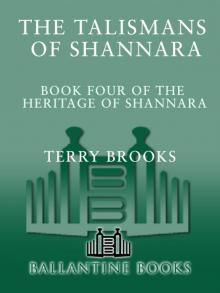 The Talismans of Shannara
The Talismans of Shannara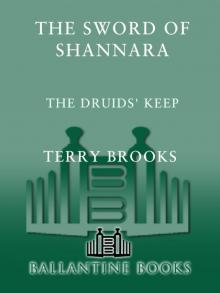 The Sword of Shannara: The Druids' Keep: The Druids' Keep
The Sword of Shannara: The Druids' Keep: The Druids' Keep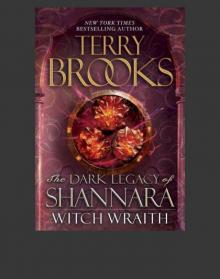 Witch Wraith
Witch Wraith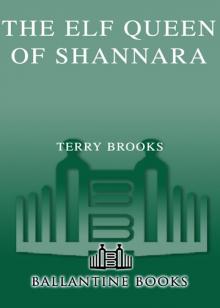 The Elf Queen of Shannara
The Elf Queen of Shannara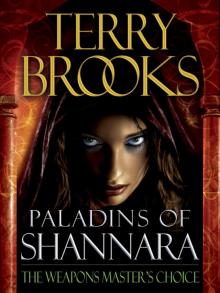 The Weapons Master's Choice
The Weapons Master's Choice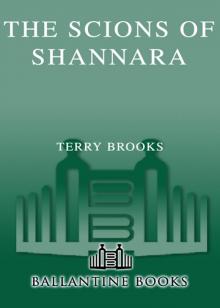 The Scions of Shannara
The Scions of Shannara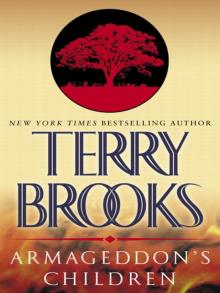 Armageddon's Children
Armageddon's Children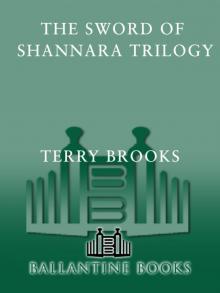 The Sword of Shannara Trilogy the Sword of Shannara Trilogy
The Sword of Shannara Trilogy the Sword of Shannara Trilogy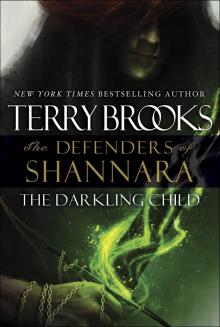 The Darkling Child
The Darkling Child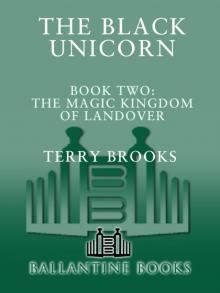 The Black Unicorn
The Black Unicorn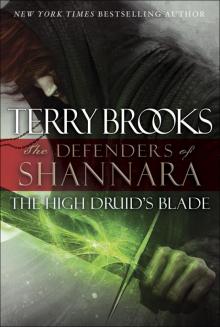 The High Druid's Blade
The High Druid's Blade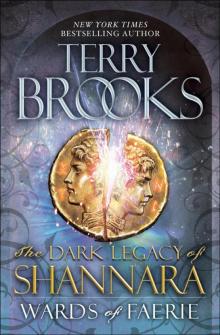 Wards of Faerie
Wards of Faerie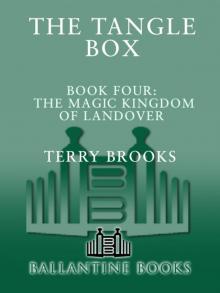 The Tangle Box
The Tangle Box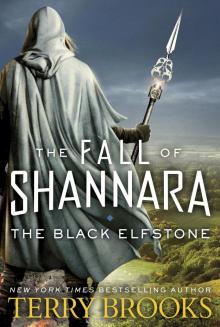 The Black Elfstone
The Black Elfstone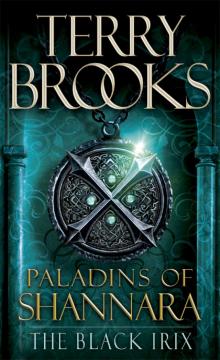 The Black Irix
The Black Irix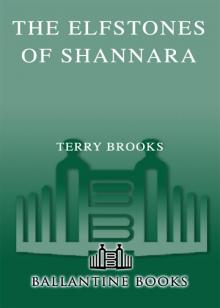 The Elfstones of Shannara
The Elfstones of Shannara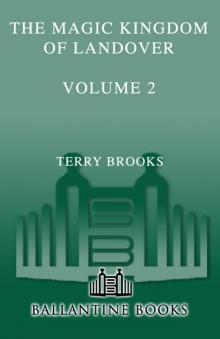 The Magic Kingdom of Landover Volume 2
The Magic Kingdom of Landover Volume 2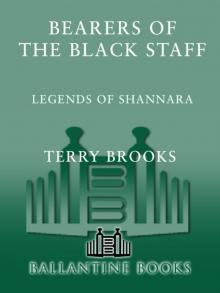 Bearers of the Black Staff
Bearers of the Black Staff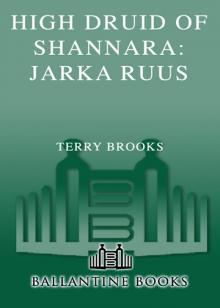 Jarka Ruus
Jarka Ruus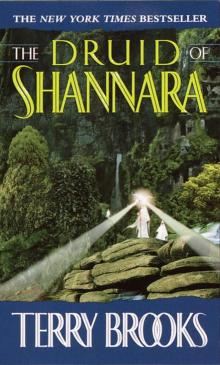 The Druid of Shannara
The Druid of Shannara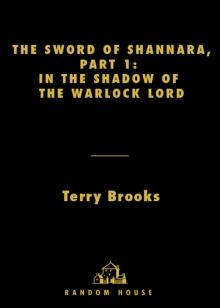 The Sword of Shannara
The Sword of Shannara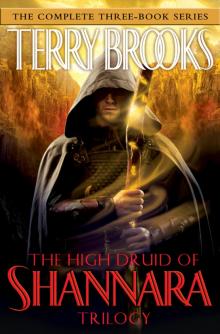 The High Druid of Shannara Trilogy
The High Druid of Shannara Trilogy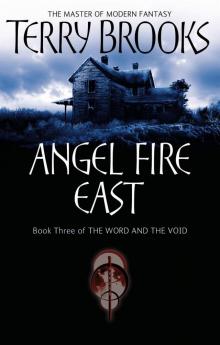 Angel Fire East
Angel Fire East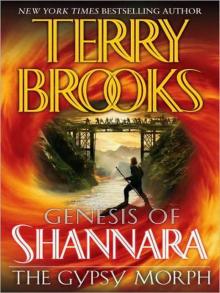 The Gypsy Morph
The Gypsy Morph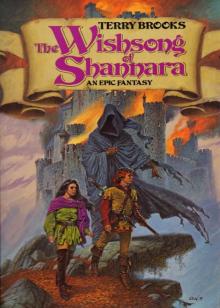 The Wishsong of Shannara
The Wishsong of Shannara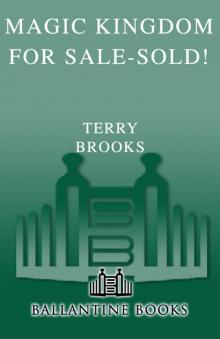 Magic Kingdom for Sale--Sold
Magic Kingdom for Sale--Sold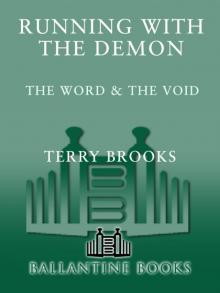 Running With the Demon
Running With the Demon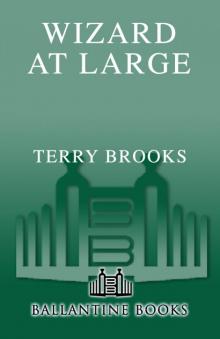 Wizard at Large
Wizard at Large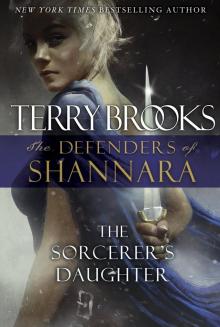 The Sorcerer's Daughter
The Sorcerer's Daughter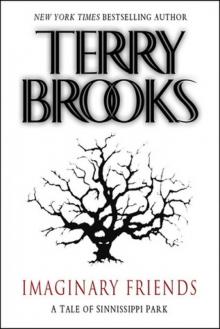 Imaginary Friends
Imaginary Friends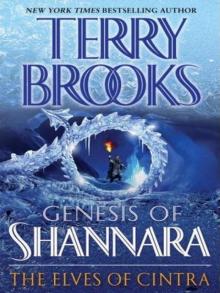 The Elves of Cintra
The Elves of Cintra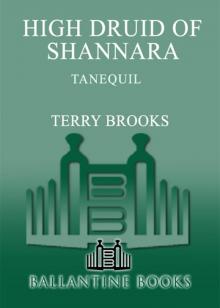 Tanequil
Tanequil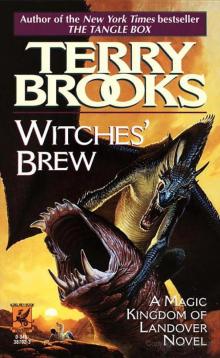 Witches' Brew
Witches' Brew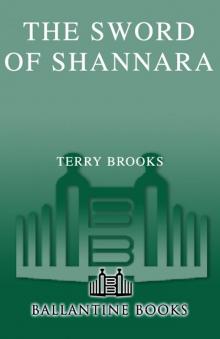 The Sword of the Shannara and the Elfstones of Shannara
The Sword of the Shannara and the Elfstones of Shannara The World of Shannara
The World of Shannara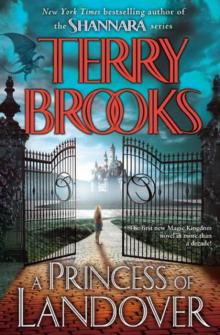 A Princess of Landover
A Princess of Landover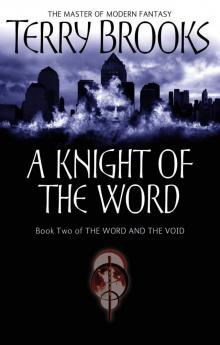 A Knight of the Word
A Knight of the Word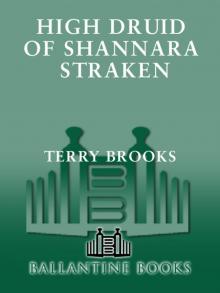 Straken
Straken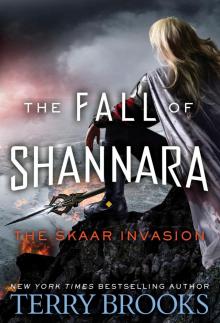 The Skaar Invasion
The Skaar Invasion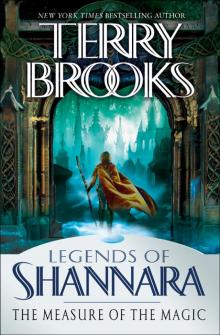 The Measure of the Magic: Legends of Shannara
The Measure of the Magic: Legends of Shannara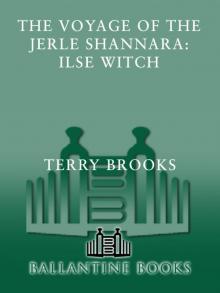 Ilse Witch
Ilse Witch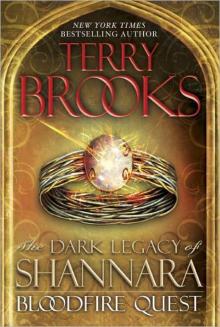 Bloodfire Quest
Bloodfire Quest The Stiehl Assassin
The Stiehl Assassin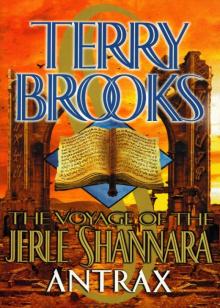 Antrax
Antrax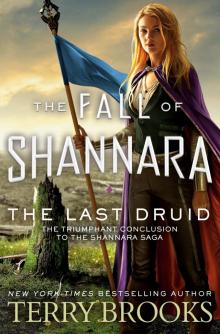 The Last Druid
The Last Druid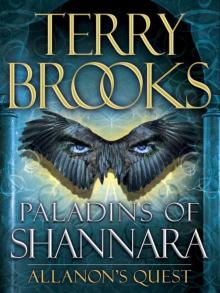 Paladins of Shannara: Allanon's Quest
Paladins of Shannara: Allanon's Quest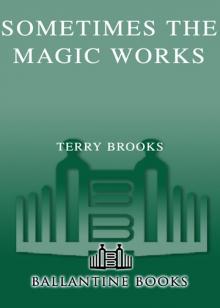 Sometimes the Magic Works: Lessons From a Writing Life
Sometimes the Magic Works: Lessons From a Writing Life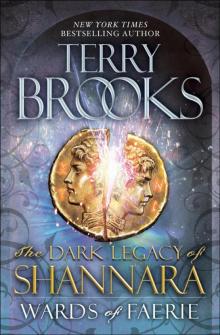 Wards of Faerie: The Dark Legacy of Shannara
Wards of Faerie: The Dark Legacy of Shannara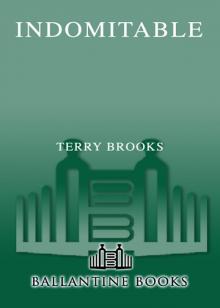 Indomitable: The Epilogue to The Wishsong of Shannara
Indomitable: The Epilogue to The Wishsong of Shannara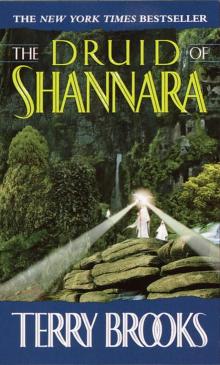 Heritage of Shannara 01 - The Druid of Shannara
Heritage of Shannara 01 - The Druid of Shannara Star Wars - Phantom Menace
Star Wars - Phantom Menace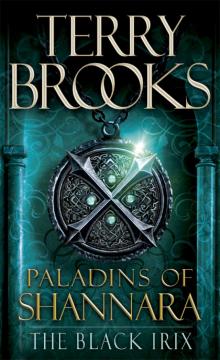 The Dark Legacy of Shannara Trilogy 3-Book Bundle
The Dark Legacy of Shannara Trilogy 3-Book Bundle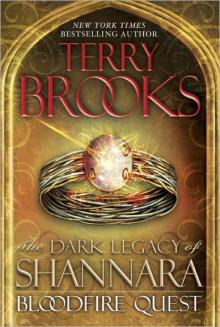 The Bloodfire Quest
The Bloodfire Quest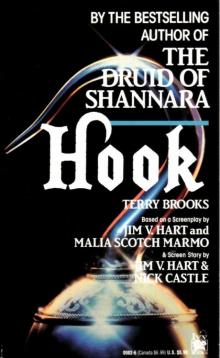 The Hook (1991)
The Hook (1991)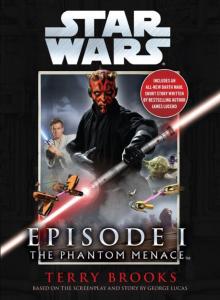 Star Wars: Episode I: The Phantom Menace
Star Wars: Episode I: The Phantom Menace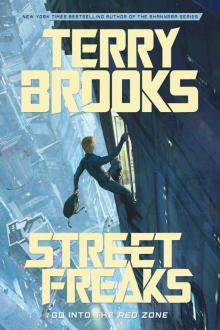 Street Freaks
Street Freaks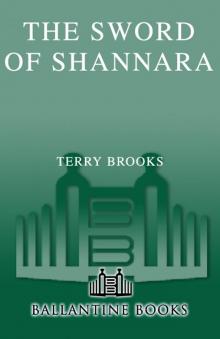 The Sword of Shannara & Elfstones of Shannara
The Sword of Shannara & Elfstones of Shannara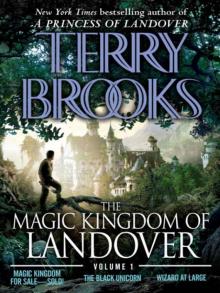 The Magic Kingdom of Landover , Volume 1
The Magic Kingdom of Landover , Volume 1 The Phantom Menace
The Phantom Menace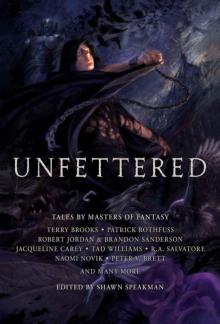 Unfettered
Unfettered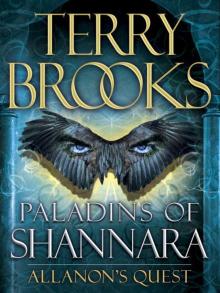 Allanon's Quest
Allanon's Quest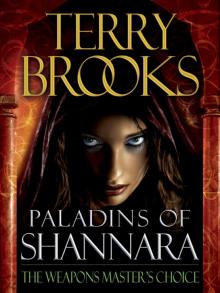 Paladins of Shannara: The Weapons Master's Choice
Paladins of Shannara: The Weapons Master's Choice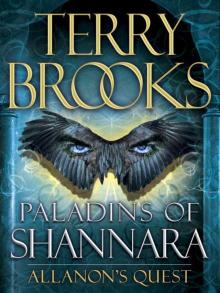 Terry Brooks - Paladins of Shannara - Allanon's Quest (Short Story)
Terry Brooks - Paladins of Shannara - Allanon's Quest (Short Story) Star Wars Episode I: The Phantom Menace (star wars)
Star Wars Episode I: The Phantom Menace (star wars)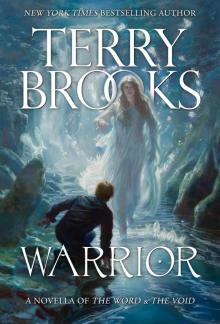 Warrior (The Word and the Void)
Warrior (The Word and the Void)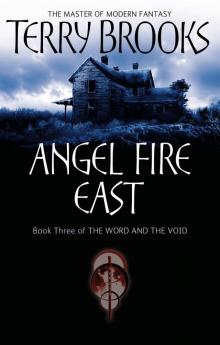 Word & Void 03 - Angel Fire East
Word & Void 03 - Angel Fire East![[Magic Kingdom of Landover 05] - Witches' Brew Read online](http://i1.bookreadfree.com/i2/04/05/magic_kingdom_of_landover_05_-_witches_brew_preview.jpg) [Magic Kingdom of Landover 05] - Witches' Brew
[Magic Kingdom of Landover 05] - Witches' Brew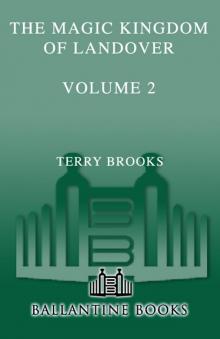 The Magic Kingdom of Landover - Volume 2
The Magic Kingdom of Landover - Volume 2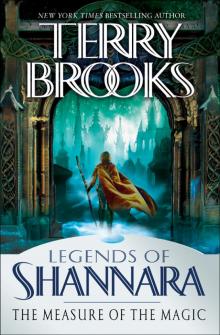 The Measure of the Magic
The Measure of the Magic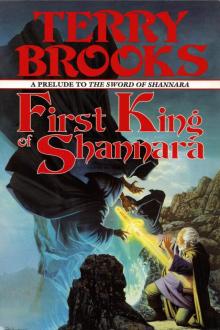 The First King of Shannara
The First King of Shannara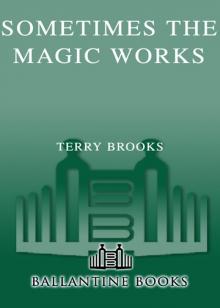 Sometimes the Magic Works
Sometimes the Magic Works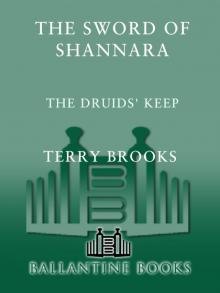 The Sword of Shannara, Part 2: The Druids' Keep
The Sword of Shannara, Part 2: The Druids' Keep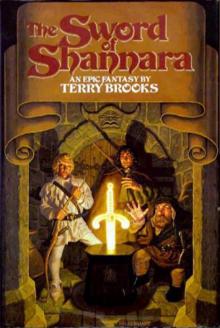 The Sword of Shannara tost-1
The Sword of Shannara tost-1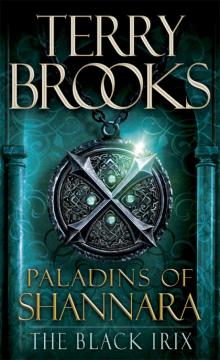 Paladins of Shannara: The Black Irix (Short Story)
Paladins of Shannara: The Black Irix (Short Story)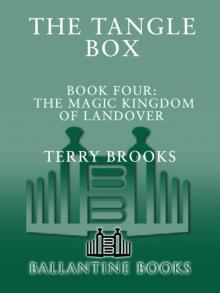 Tangle Box
Tangle Box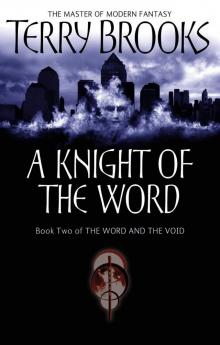 Word & Void 02 - A Knight of the Word
Word & Void 02 - A Knight of the Word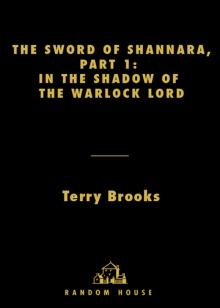 The Sword of Shannara, Part 1: In the Shadow of the Warlock Lord
The Sword of Shannara, Part 1: In the Shadow of the Warlock Lord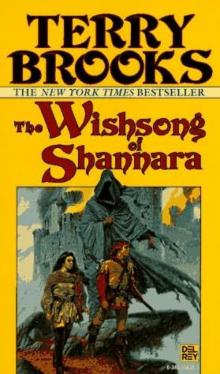 The Wishsong of Shannara tost-3
The Wishsong of Shannara tost-3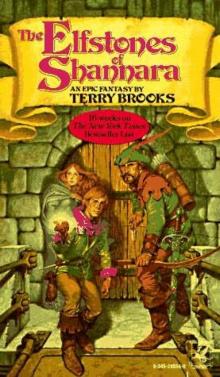 The Elfstones of Shannara tost-2
The Elfstones of Shannara tost-2